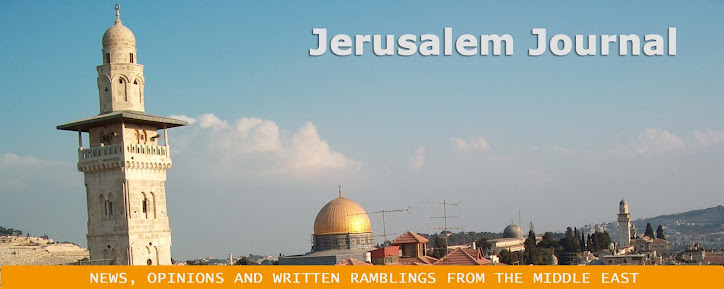JERICHO – This Arab town may look like a rocky, barren desert, but after five years of laboring in obscurity, American Karen Dunham has seen it become an oasis of hope and salvation in the Palestinian territories.
“Now Jericho is given into the hands of the Lord,” Dunham said. “There isn’t anywhere you can’t talk about Jesus.”
She runs a church attended by up to 300 Palestinians. No one leaves empty-handed—but no one gets humanitarian aid without also getting a tract and a Bible.
Despite enduring two car bombings and fires set at her home and office, Dunham stayed on and organized even more aid programs. Her persistence and humility gained favor with Palestinian officials and Jericho’s elders, and she expanded her ministry. As one Moslem leader told her, “If this whole city goes with your faith then all I can say is, ‘Cheers!’”
While Hamas was gaining a foothold in Gaza and Christians in Judea and Samaria (the so-called “West Bank”) were timidly tolerated in their towns, Jericho, a Moslem farming community of 25,000, was becoming a model of transformation. Dunham estimates that about 200 residents have accepted the Lord. Openness among Moslems is high and the gospel is allowed. Dunham said the city council voted, specifically for her, that handing out a tract or a Bible is no longer considered evangelism.
The results of Dunham’s outreach stem from a simple yet profound strategy: a Bible or a bomb. She provides the gospel, and hopes the results are that people turn to God instead of violence to meet their needs.
Noted Christian speakers and authors Jill Austin of Master Potters Ministry and Cindy Jacobs, who traveled to Israel during the Feast of Tabernacles, joined Dunham for two days of ministry. They spent time on both sides of the border and led a humanitarian outreach in Jericho with Dunham.
The Jericho Municipality insisted that its official policy has always been to accept all religions without prejudice and that the city supports Dunham by not requiring her to pay certain city bills. Mayor Hassan Saleh, a moderate Moslem and member of Fatah, said the town welcomes “Christians in Jericho because it is a holy place that joins all religions.”
“There is no policy to prevent them from expressing their religious background,” he said. “If you see the people here, how Christians and Moslems relate, they’re free to express what they believe.”
Sami Musallam, a former governor of Jericho, said Dunham’s actions speak louder than words. “Her purpose is to extend help to needy people,” he said. “She does some good work and provides support for them.”
A wealth of energy and strong faith, Dunham was a pariah among Christian organizations in the Land because her work in the Palestinian camps was seen as anti-Zionist. But her efforts were not lost on a key Zionist group: the Israeli army. The Israel Defense Forces (IDF) has not only facilitated Dunham’s border crossings but also helped her get NGO (non-governmental organization) status.
The army even asked her to continue her work in the 28 other Palestinian refugee camps where it sees a need. Next on the list is southern Hebron where the IDF told her some Arabs live in caves and have no running water. Dunham will raise money and get supplies, and the military will allow her into territories where no Christian organization, no Israeli and not even the United Nations has ventured.
An IDF officer, speaking on background, said soldiers at the Israeli civil administration in Jericho were impressed by Dunham and don’t mind her spreading the gospel. “She’s less interested in a political message and doesn’t complain about what the Israeli army is doing,” he said.
Her work, he said, has a greater impact on the Palestinians than the bigger organizations because “she has less internal bureaucracy and comes with honesty to the people. Because of Karen’s activities, their lives are improved and they have a more positive attitude toward the IDF because they realize we are supporting her.”
Dunham is not intimidated by Christian leaders, Moslem extremists or her lack of knowledge of either Hebrew or Arabic. Her team includes several teenagers who share her fearlessness going into the tough places, like her son Blake.
Dunham initially came to Israel simply to pray. She met a Catholic priest who told her, “If you can feed Jericho, you can win the city for Jesus.” The words burned in her heart, and soon after, she moved to a refugee camp there. News of her success began reaching Jerusalem in the last two years. Now volunteers join Dunham every week in Jericho for church services and tour groups from overseas include Jericho among their stops.
“Five years ago it wasn’t popular to be here at all,” she said.
Jericho was once a destination for Israelis and tourists with some 3,000 Israelis spending their Sabbath at the city’s casino or visiting holy sites—before the second Palestinian uprising erupted in 2000.
Somehow Dunham has managed to walk a tightrope, maintaining favor with both Palestinian and Israeli army officials. Kamel Sinokrot, who runs the largest tourist attraction in the city—a cable car up to the Mount of Temptation with a restaurant and lookout point—is a devout Moslem, but he lent his facility to Dunham for her TV broadcast. He welcomes her overtly Christian gatherings, and, of course, the tourism she brings to the desert town.
“We’re not opposed to this at all,” Sinokrot said as 140 foreigners participated in a worship service at his restaurant. Even with Moslem women joining in the worship, he didn’t have a problem. “We are very happy,” he said. “We all worship the Lord.”


